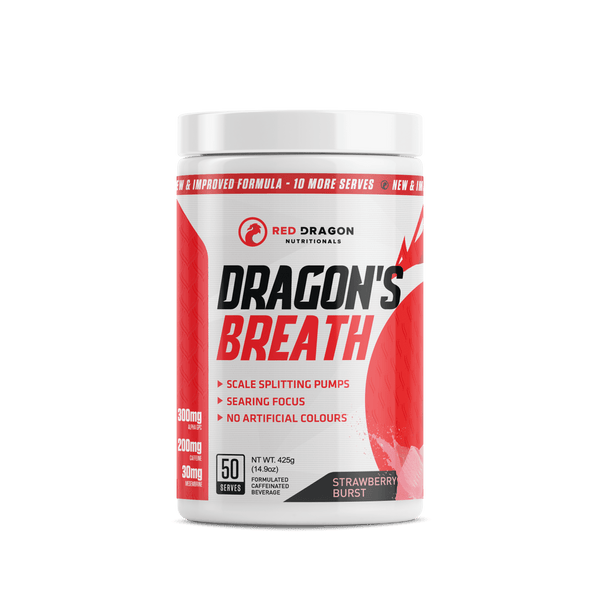Tyrosine is much more than a trending topic in the realm of dietary supplements; it's an amino acid essential to human life. While popular for enhancing mental sharpness, tyrosine offers an array of physiological benefits. However, its interaction with medications and potential side effects are not to be overlooked. We present an exhaustive review of tyrosine, addressing its benefits, side effects, and optimal dosages.

What Is Tyrosine and Its Role in the Body?
Tyrosine is a non-essential amino acid, synthesized from another amino acid called phenylalanine. Its name originates from the Greek word "tyros," signifying cheese, where it was initially discovered.
Not only is tyrosine naturally present in cheese, but also in other protein-rich foods like chicken, turkey, and fish. Tyrosine serves as a precursor to critical bioactive substances, such as:
-
Dopamine: Vital for controlling the brain's reward and pleasure mechanisms, while also influencing memory and motor skills.
-
Adrenaline and Noradrenaline: These hormones are integral to the fight-or-flight response, prepping the body to respond to stressful conditions.
-
Thyroid Hormones: Regulating metabolism, these hormones emanate from the thyroid gland.
-
Melanin: This pigment is responsible for the coloration of skin, hair, and eyes.
As a dietary supplement, tyrosine can be consumed alone or in combination with other ingredients, like in pre-workout formulas. Supplementing with tyrosine tends to enhance the levels of dopamine, adrenaline, and norepinephrine, contributing to improved mental performance under stress.
Mental Performance Under Stress: A Closer Look
Stress affects everyone differently, but universally impairs cognitive faculties like reasoning, memory, and attention. Studies have indicated that tyrosine supplementation may counteract these adverse effects.
For instance, research involving 22 women revealed that tyrosine significantly boosted working memory during mentally challenging tasks. Furthermore, another study with a similar participant pool demonstrated improvements in cognitive flexibility upon tyrosine supplementation.

Phenylketonuria (PKU) and Tyrosine Deficiency
PKU is a rare genetic disorder, impairing the body's ability to convert phenylalanine into tyrosine. Those with PKU often face a tyrosine deficiency, which may lead to behavioral issues. While tyrosine supplementation might seem a logical remedy, the current scientific consensus remains inconclusive.

Controversial Efficacy in Treating Depression
Although tyrosine can influence neurotransmitter levels associated with mood, its efficacy as a treatment for depression remains a topic of debate. Studies so far have not convincingly demonstrated the antidepressant capabilities of tyrosine, especially when compared to conventional antidepressants.

Side Effects and Drug Interactions
Regarded as "Generally Recognized as Safe" by the Food and Drug Administration, tyrosine can be consumed safely up to a dose of 68 mg per pound of body weight per day for three months. Nonetheless, interactions with medications like Monoamine Oxidase Inhibitors (MAOIs) and thyroid medications are possible, warranting caution.

How to Supplement with Tyrosine Effectively
When choosing a tyrosine supplement, the free-form amino acid version is usually preferred over its water-soluble counterpart, N-acetyl L-tyrosine (NALT). Generally, doses ranging from 500-2,000 mg are taken 30-60 minutes before exercise, though the impact on athletic performance remains ambiguous.

Conclusion
Tyrosine is indeed a versatile amino acid with promising potential benefits. Its ability to improve mental acuity during stress stands out as its most substantiated asset. While generally safe, tyrosine does have its share of caveats, particularly concerning drug interactions. As always, consult your healthcare provider before embarking on any supplementation regime.

FAQ's
Q1: What is Tyrosine and where is it found naturally?
Tyrosine is a non-essential amino acid that is synthesized from phenylalanine. It serves as a precursor to various bioactive substances like dopamine, adrenaline, and thyroid hormones. Naturally, tyrosine is found in protein-rich foods such as cheese, chicken, turkey, and fish.
Q2: How does Tyrosine impact mental performance under stress?
Tyrosine is known to enhance levels of dopamine, adrenaline, and norepinephrine in the body. Studies indicate that supplementation with tyrosine can improve cognitive faculties like working memory and cognitive flexibility during mentally challenging tasks, thus helping in better mental performance under stress.
Q3: Is Tyrosine considered safe for consumption and what are the recommended dosages?
Tyrosine is "Generally Recognized as Safe" by the Food and Drug Administration (FDA). The recommended safe dosage is up to 68 mg per pound of body weight per day for a period of up to three months.
Q4: Are there any known drug interactions or side effects associated with Tyrosine supplementation?
While tyrosine is generally safe, it may interact with certain medications like Monoamine Oxidase Inhibitors (MAOIs) and thyroid medications. It is advised to consult your healthcare provider before beginning any supplementation regime to avoid potential interactions.
Q5: Can Tyrosine be used to treat depression or Phenylketonuria (PKU)?
The scientific consensus on tyrosine's efficacy as a treatment for depression or PKU is inconclusive. Although it influences neurotransmitter levels associated with mood, studies have not conclusively shown its effectiveness as an antidepressant. Similarly, while those with PKU often face a tyrosine deficiency, supplementation is not definitively recommended for treatment.
Disclaimer:
The content provided in this blog is for informational purposes only and is not intended as a substitute for professional medical advice, diagnosis, or treatment. While efforts have been made to ensure the accuracy of the information presented, readers are advised to consult a qualified healthcare provider before making any decisions regarding Tyrosine supplementation or any other health-related matters. The blog does not claim to offer definitive answers on the efficacy or safety of Tyrosine for medical conditions. Always seek the advice of your healthcare provider with any questions you may have regarding a medical condition.


